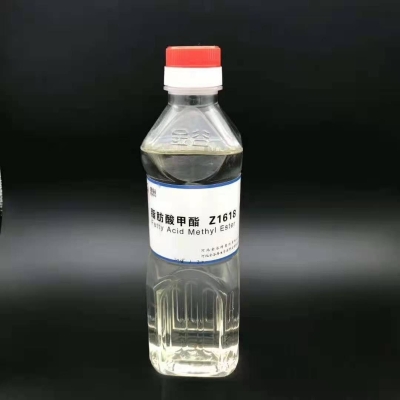-
Categories
-
Pharmaceutical Intermediates
-
Active Pharmaceutical Ingredients
-
Food Additives
- Industrial Coatings
- Agrochemicals
- Dyes and Pigments
- Surfactant
- Flavors and Fragrances
- Chemical Reagents
- Catalyst and Auxiliary
- Natural Products
- Inorganic Chemistry
-
Organic Chemistry
-
Biochemical Engineering
- Analytical Chemistry
-
Cosmetic Ingredient
- Water Treatment Chemical
-
Pharmaceutical Intermediates
Promotion
ECHEMI Mall
Wholesale
Weekly Price
Exhibition
News
-
Trade Service
As more and more sanctions hit Russia's energy sector, various controversies gradually surfaced
.
Following natural gas, on May 4, the European Union gave a timetable
for "cutting off" Russian oil imports.
On May 4, local time, European Commission President von der Leyen proposed the sixth sanctions plan
to member states.
One of the key elements of the plan is the implementation of a total embargo
on Russian oil over the next six to eight months.
However, after the EU's proposal was published, several members expressed opposition
.
For these sanctions to enter into force, they require the unanimous approval
of the 27 members of the European Union.
The EU hopes to reach an agreement
this weekend.
In addition, Japan, which has always followed the sanctions between the United States and Europe, is also cautious
about the field of Russian oil sanctions.
On May 5, Japanese Minister of Economy, Trade and Industry Koichi Hagiuda made it clear at a press conference that Japan will not ban oil
imports from Russia.
Affected by the EU's announcement of the oil embargo plan against Russia and the market's supply concerns, international crude oil prices rose sharply on the 4th, hitting a new high
in three weeks.
International oil prices continued to rise
on the 5th.
As of the close of the day, light crude oil futures for June delivery on the New York Mercantile Exchange closed at $108.
26 a barrel, or 0.
42 percent
.
London Brent crude oil futures for July delivery closed at $110.
90 a barrel, or 0.
69 percent
.
There is also opposition within the EU
Even within the EU, not all members agree to a "one-size-fits-all" approach to oil from Russia
.
In previous sanctions packages, the EU has set a long-term goal for sanctioning Russian gas, that is, to completely get rid of its dependence on
Russian gas by 2027.
In contrast, the EU's new sanctions on Russian oil are more aggressive
.
According to Eurostat, 40% of EU gas imports come from Russia, while oil imports account for only 26%.
While sanctions against Russian oil appear to have more leeway, they have sparked controversy
within the EU.
At least four member states, Hungary, Slovakia, the Czech Republic and Bulgaria, are currently seeking to withdraw from the embargo
on Russian oil.
The four countries are highly
dependent on Russian oil imports.
In Slovakia, for example, Eurostat data shows that the country relies on Russian imports for 96% of its
oil.
Therefore, Slovakia has been seeking to set a 3-year transition period for banning the import of Russian oil, but so far, only a one-year delay has been obtained
.
Karol Galek, Slovakia's deputy minister of the economy, believes that the transition time is not enough
.
Hungarian Foreign Minister Peter Szijjarto said, "In its current form, the EU's proposal for sanctions is unlikely to be supported, at least without giving Hungary a guarantee of
energy security.
" Hungary can agree to such sanctions
only if the pipeline import of Russian oil is exempted.
According to the Hungarian government, in 2021, about 65% of Hungary's oil will come from Russia
.
UBS believes that the EU's proposed oil embargo on Russia still needs to be approved by member states, so the situation is likely to change, "if the sanctions finally passed are as severe as currently proposed, oil prices may rise
.
" ”
Japan with limited resources
When talking about whether to follow the United States and Europe in banning Russian oil, Koichi Hagiita said that Japan will not implement this decision, "Japan has limited resources, it is difficult to keep up with the EU immediately
.
" Earlier, in March, Japanese Prime Minister Fumio Kishida also took a negative attitude
towards banning the import of Russian crude oil.
Hiroshi Hashimoto, a senior analyst at the Institute of Energy Economics (IEEJ) of Japan, told Daiichi that Russia's oil and gas resources are very important to Japan, and energy security is always a top priority when
making relevant decisions by Japanese companies and governments.
According to data released by Japan's Agency for Natural Resources and Energy at the end of last year, Japan's energy self-sufficiency rate in 2020 was only 11.
2%.
Compared with the Middle East, Japan imports a smaller proportion of energy from Russia, but in order to diversify the source of procurement, Japan attaches great importance to Russia
, which is geographically close and rich in resources.
According to data from Japan's foreign trade revitalization, Russia accounted for 3.
6% of Japan's crude oil imports and 8.
8% of Japan's natural gas imports in 2021, 13% of fuel coal and 8%
of raw coal.
Until 2018, Japan was the world's largest importer of
natural gas.
Since 2018, Japan has ranked second
in terms of global natural gas import demand.
According to the World Natural Gas Exporting Countries (GECF) organization, known as the "natural gas version of OPEC", Australia is the main provider of liquefied natural gas in Japan, accounting for about 40% of Japan's total imports all year round; It is followed by Malaysia, with an average of about 14%; Qatar is in third place, at about 11%; In Russia, it is about
8% to 9%.
Previously, in response to the sanctions imposed by the United States and Europe on Russia on the situation in Ukraine, Japan also said that it would take the initiative to reduce natural gas imports from Russia
.
To this end, Japan hopes that the United States will increase its assistance
for liquefied natural gas.
At the same time, the Japanese government also plans to subsidize
Japanese companies participating in the LNG project in the United States in the future.
Hashimoto told CBN that the current surge in global energy prices is caused by a combination of factors and events, including the rebound in global energy demand, the weak performance of renewable energy production in Europe, the lower-than-expected production and export of Russian natural gas, and the unplanned operation disruption of several LNG production plants
.
In the context of Western sanctions, a number of European and American companies, such as ExxonMobil and Shell, have clearly stated their withdrawal from energy projects
that are involved in cooperation with Russian companies.
As of the time of CBN's press release, Japan's major consortiums, such as Mitsui & Co.
, Ltd.
, Mitsubishi Group, Marubeni Trading Co.
, Ltd.
, etc.
, have said they will not "follow suit" sanctions and will not terminate cooperation
with Russian energy projects.







